SUMMARY
This is AI generated summarization, which may have errors. For context, always refer to the full article.
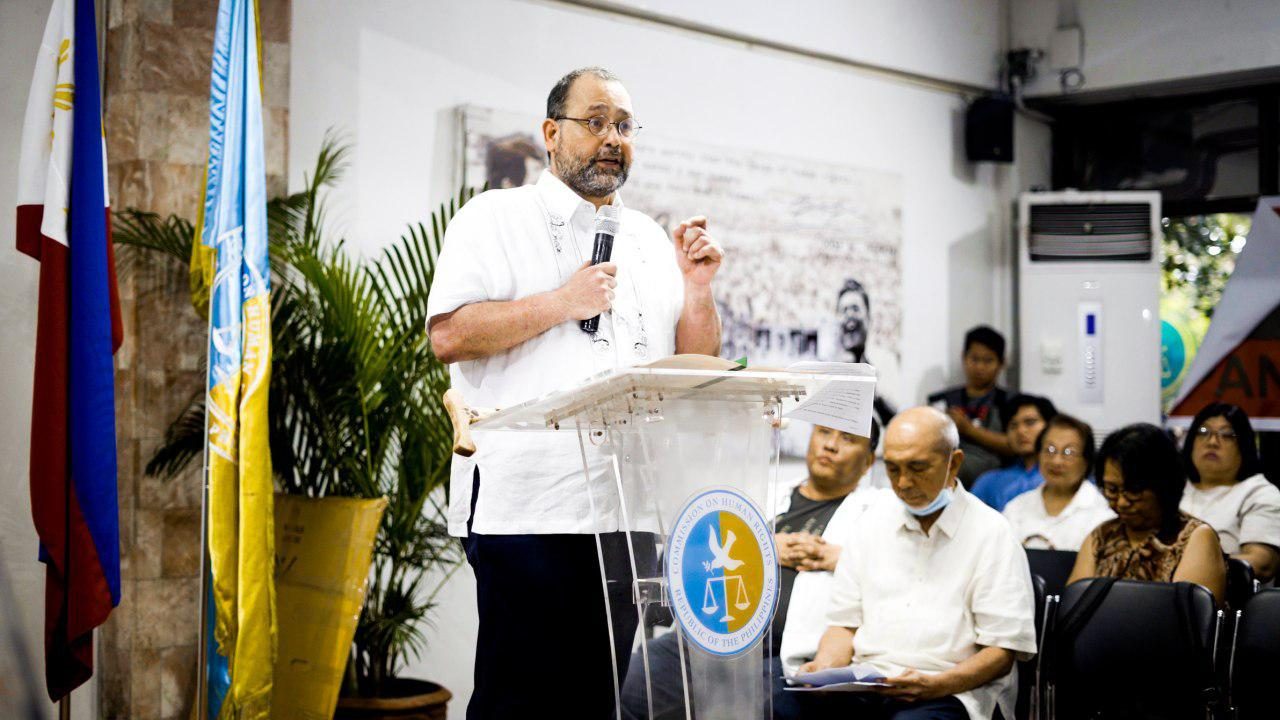
The intensity of attacks hurled toward Jose Luis Martin “Chito” Gascon over the past five years would make any other person second-guess if the path he had chosen was still worth everything.
But for Chair Chito, as he was fondly called by his colleagues, investigating the widespread abuses under President Rodrigo Duterte’s war on drugs was part of the huge responsibility as chairperson of the Commission on Human Rights (CHR).
“Trabaho lang tayo (Let’s just work),” he often told reporters when pressed for a reaction about the latest tirade of President Rodrigo Duterte and his allies against him.
Gascon died on Saturday, October 9, due to COVID-19 complications. He was 57.
Many have hailed Chair Chito for being brave, determined, and inclusive despite the challenges – a reflection of Gascon as a person and his roots as a human rights activist. He never cowered, never backed down, even as he faced the wrath of the most powerful man in the Philippines.
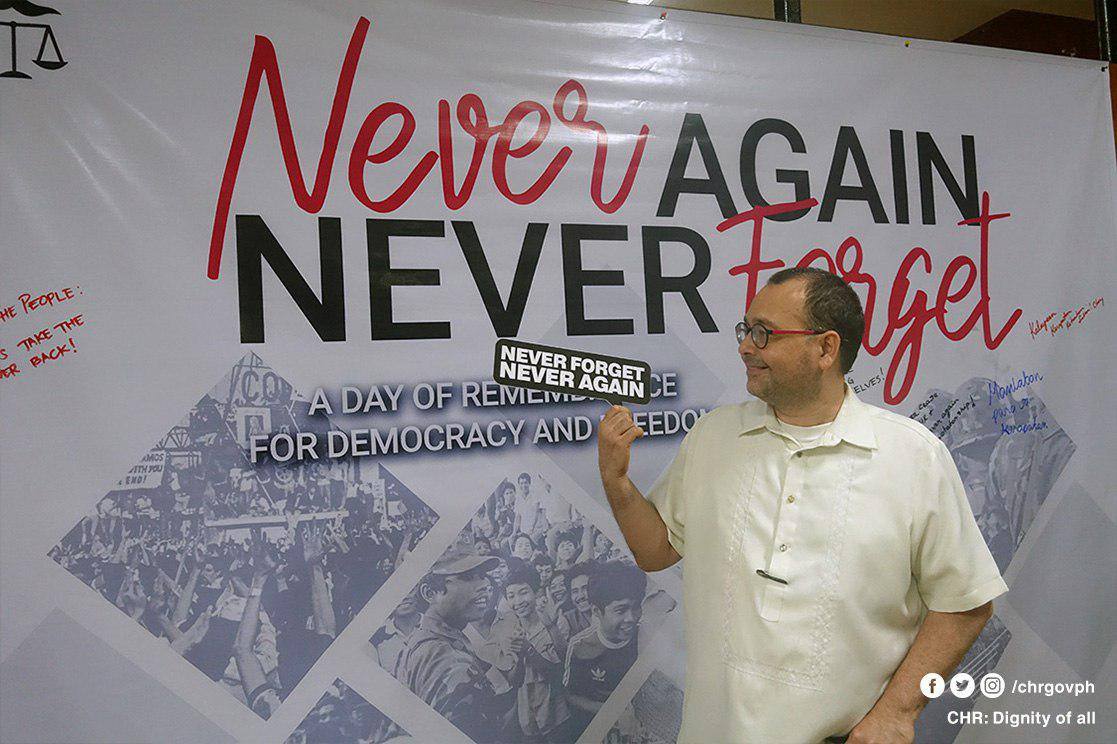
3 decades for human rights
Gascon’s courage can be traced back to his years as a student leader. He carried with him both the victories and lessons throughout his three-decade work in human rights and under different administrations.
He was a student activist at the University of the Philippines (UP) during Martial Law, organizing the youth and marching alongside people from all walks of life against the dictator Ferdinand Marcos.
He also was the student council chairperson in 1985, serving as an inspiration for many student leaders during a crucial time in the country.

After the 1986 People Power Revolution, Gascon would go on to contribute significantly to the newly restored democracy as the youngest member of the Constitutional Commission that drafted the 1987 Philippine Constitution.
“He was already very articulate and emphatic then, ready anytime to engage in intellectual sparring and showed signs of leadership,” National Union of Peoples’ Lawyers president Edre Olalia, Gascon’s classmate in UP, told Rappler.
The two eventually crossed paths and worked together numerous times in the years following Martial Law, including peace talks when Gascon was a panel member and Olalia was legal consultant.
Gascon went on to work as executive director for think tank National Institute for Policy Studies, LIBERTAS, and was also a founding trustee of the International Center for Innovation, Transformation, and Excellence in Governance.
Aside from his stint in nongovernmental organizations, Gascon also held several government positions, including as Department of Education undersecretary from 2002 to 2005 and undersecretary for political affairs at the Office of the President from 2011 to 2014.
He also served as secretary-general for the Liberal Party (LP) from 2008 to 2011, working as its political director for the 2010 presidential campaign.
The LP said in a statement on Saturday that Gascon “inspired generations of Liberals.”
“He was instrumental in keeping the Party on the path of courage and principle during times when it would have been easier to yield to the darker forces in our democracy,” the LP said.
“He welcomed new members with warmth and inspired many of us to stay true to our values, gaano man kahirap ng mga hamon na ating kinakaharap (no matter how hard the challenges are),” it added.
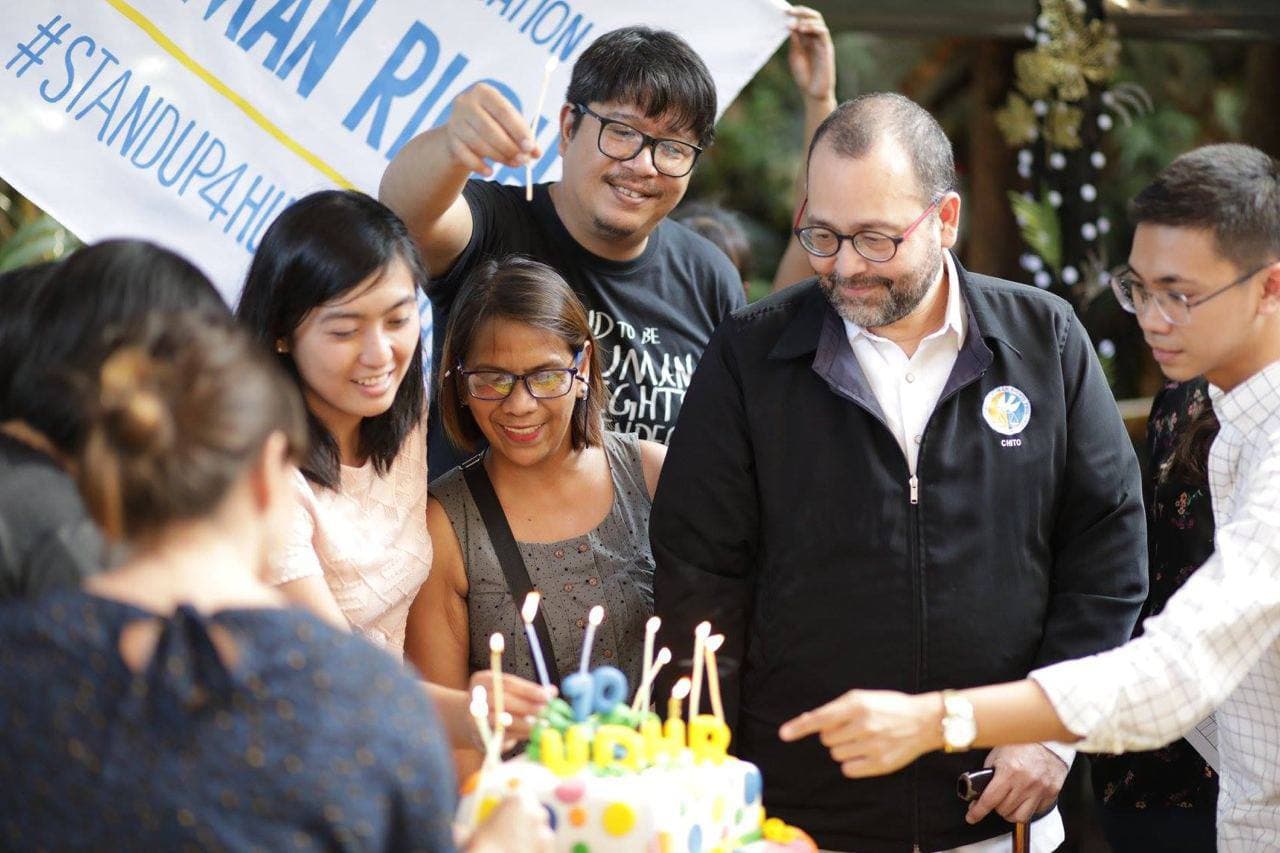
From Marcos to Duterte
Prior to joining the CHR, Gascon was also a board member at the Human Rights Victims Claims Board, the body that oversaw the reparations for Martial Law victims. He became a trustee as CHR chairperson.
A fitting position, one may argue, not just for his activism years, but also given the obvious similarities between Marcos and Duterte, who both plunged the country into periods of human rights crisis.
Gascon took the reins of the CHR a year before the presidency of Duterte, who had long been locking horns with the commission especially for its investigation into the Davao Death Squad during the time of then-chairperson and now Senator Leila de Lima. (READ: The day Duterte faced the Commission on Human Rights)
In May 2016, a month before he was sworn into office, the CHR said then president-elect Duterte’s controversial statement about a murdered Australian missionary violated the Magna Carta of Women. The commission urged the Civil Service Commission and the Department of the Interior and Local Government to “consider taking appropriate measures.”
Duterte, in return, called Gascon an idiot and the CHR “putangina (son of a bitch).”
This was just a preview of what was to come, as the commission continued to investigate and call out the Duterte administration for the rising number of killings under its controversial war on drugs.
Gascon and the CHR were among the subjects of Duterte’s expletive-ridden tirades. The administration’s allies would also question the mandate of the commission, feeding their anti-human rights messaging to trolls.
On some occasions, journalists would decide to ignore these statements from the President. But a notification would appear in our messaging applications, showing a message from the CHR chairperson.
“I assure the public and my current tenure as CHR chair would attest to this, that none of my previous or future actions in public office would ever be motivated by vengefulness, vindictiveness, or subjectivity,” Gascon told Rappler in July 2017.
With every ill-informed attack came a quick explanation from the chairperson, with the aim to help the public better understand the work of his commission. His retort was often direct and sans legal jargon, but still within the framework of domestic laws.
Responding to the attacks of the President and his allies is often tricky for many on the receiving end. But Gascon used it as a platform to further the discourse on human rights.
Yes, there’s a possibility that many of the people already have their minds made up against the commission, but that doesn’t mean we have to leave it at that, he often told reporters and colleagues alike.
Rachel Pelayo, a communication officer at the CHR, recalled wanting to resign amid the attacks against her workplace. But it was Gascon’s determined spirit that made her think twice. Everything is for the Filipino people.
“What kept me going is that I can see through him the service, the dedication that he will never give up on fighting human rights amid those who want to change the narrative,” she said.
“Siya iyong leader na hindi ka iiwan, yet pilit kang papaliwanagan kahit na sino ka, para sa kabutihan mo, para maitama iyong maling paniniwala mo (He’s the leader who will never leave you but will explain to correct your wrong belief),” Pelayo added.
Perhaps the biggest challenge the CHR faced under Duterte was in 2017, when the House of Representatives tried to give the commission a budget of only P1,000 for 2018. Then-speaker Pantaleon Alvarez even said he would only allow a bigger budget if Gascon resigned.
But Gascon did not give in, saying that bowing to those in power would essentially make the CHR “an institution forever at the mercy of politics.”
“They can do their worst, I will do my part,” Gascon said then.
“Wala pong personalan, trabaho lang po tayo pare-pareho sang-ayon sa batas (Don’t take it personally, let’s all just work within the law),” he also said in November 2017.
CHR Commissioner Karen Gomez-Dumpit said Gascon, her “mentor and brother,” inspired them to continue fighting during the most difficult times.
“[His] memory and work will forever be ingrained in our hearts and minds,” she said. “[He] will be a constant reminder of love for country, true public service, and respect for human rights and human dignity.”
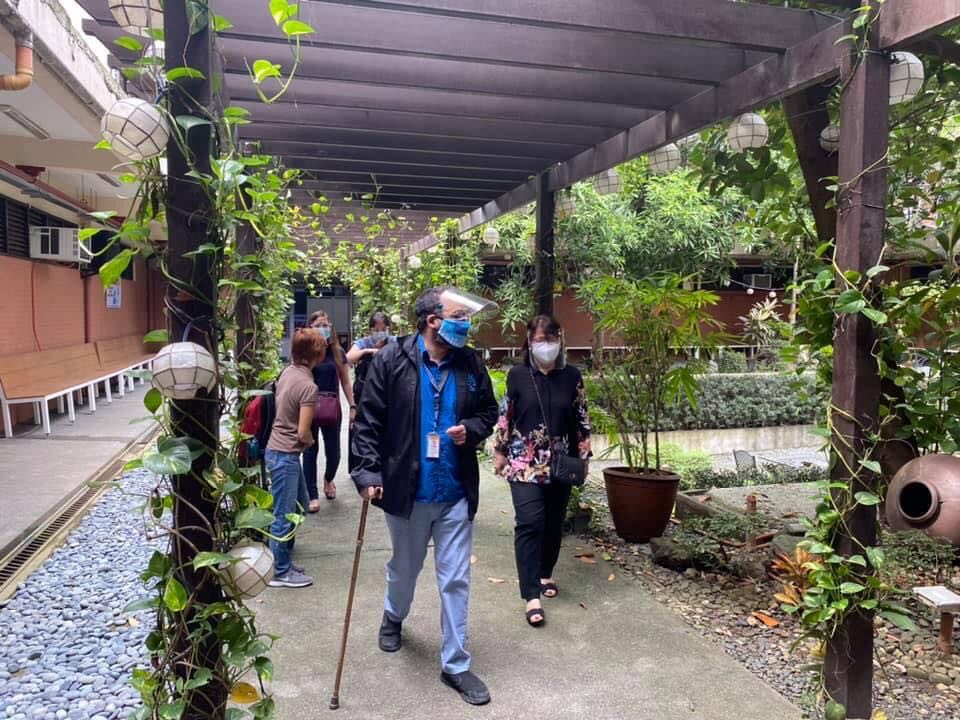
‘He was always there for us’
It was very clear that Gascon valued and was proud of his work as CHR chairperson. This was evident in the conversations – both on and off the record – with journalists, or the eager tours he gave to visitors at the recently renovated CHR headquarters in Quezon City.
His determination spilled over to the people he worked with at the CHR, with him as guiding light amid the heavy and stressful work at the commission.
Lawyer Ross Tugade, a former colleague of Gascon at the CHR, considered him a mentor who “really made me reflect on what it means to be a human rights lawyer.”
“He was so full of wisdom and you can sense his sincerity and passion in everything he does,” she told Rappler.
“I was just lucky enough to have been one of the many lawyers he helped to find our own voice as human rights defenders,” Tugade said.
Gascon also made sure to keep lines open with organizations and families of human rights victim by engaging them in consultations or just by keeping a welcoming environment in the CHR headquarters.
It was not unusual to see him drop by during events held at the Bulwagang Ka Pepe, a part of the CHR building that human rights groups can use, or personally meet people to discuss their concerns.
Fides Lim, wife of political prisoner Vicente Ladlad and spokesperson of KAPATID, said that Gascon was always there for them.
“He met with us, listened to us, and sent CHR staff to check on our imprisoned relatives,” she said. “We take strength from his legacy of service and compassion.”
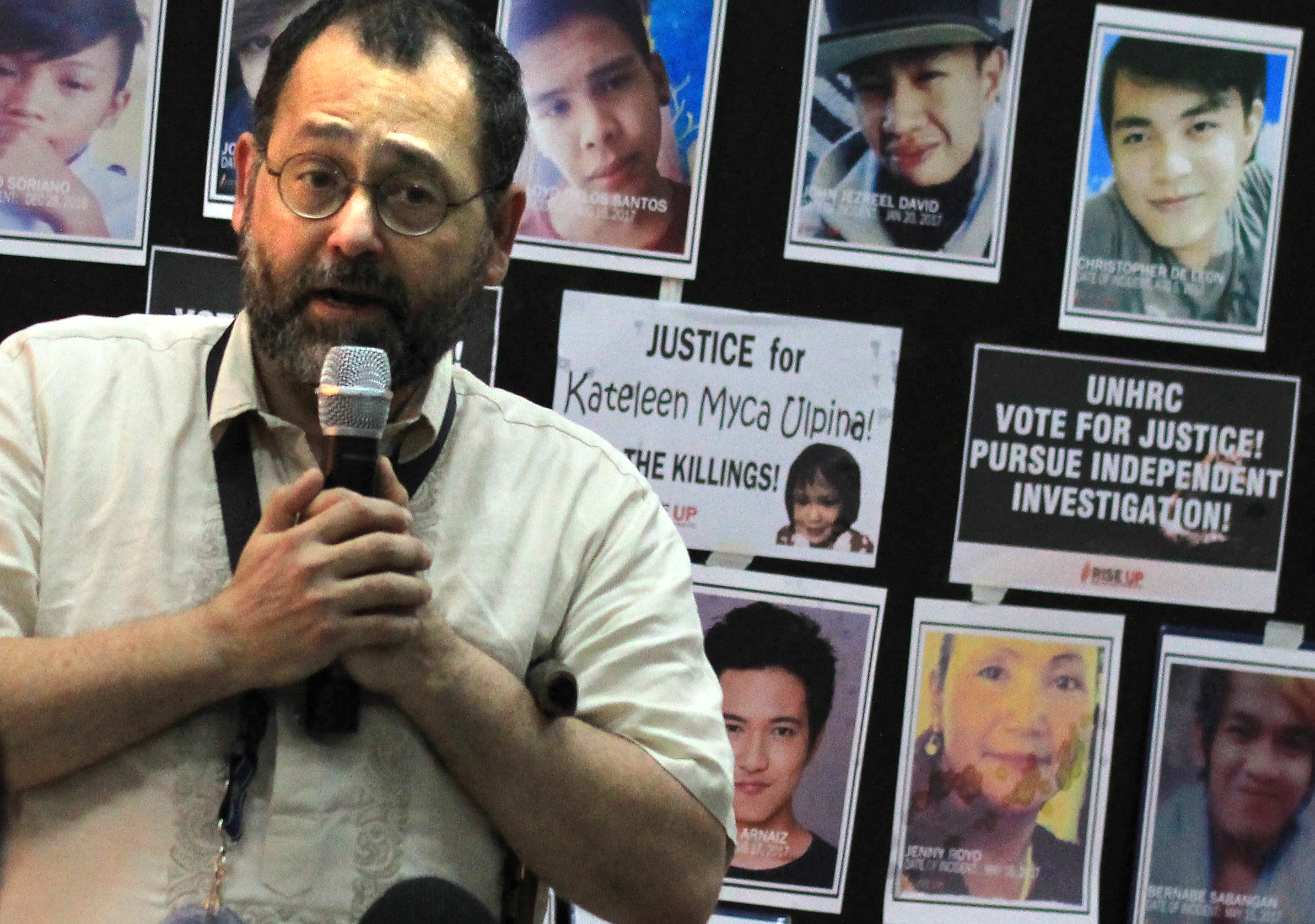
‘Press on’
Gascon’s text messages often ended with a call to action. Sometimes it’s “Fight!” or “Carry on!” or “Hold the line!”
In his last conversation with Rappler, where this reporter asked for the commission’s role in the upcoming International Criminal Court (ICC) probe, he ended his response with, “Press on.”
It was the kind of perseverance that Gascon carried with him as he faced Congress for the last time in September 2021 – four years after his leadership was questioned and the commission’s budget held hostage.
He was clear on what he wanted for CHR: bigger funding to strengthen its investigation mechanisms to prevent and probe abuses in the Philippines, especially those committed in the war on drugs.
It was mostly smooth sailing, but at the Senate, a visibly annoyed Senator Ronald “Bato” dela Rosa, former police chief who is considered the chief architect of Duterte’s drug war, lamented the ICC’s move and spewed out wrong information about the justice system.
Up until the very end, CHR Chairperson Chito Gascon – a person who never backed down in the face of threats – still patiently explained. – Rappler.com
Add a comment
How does this make you feel?





There are no comments yet. Add your comment to start the conversation.